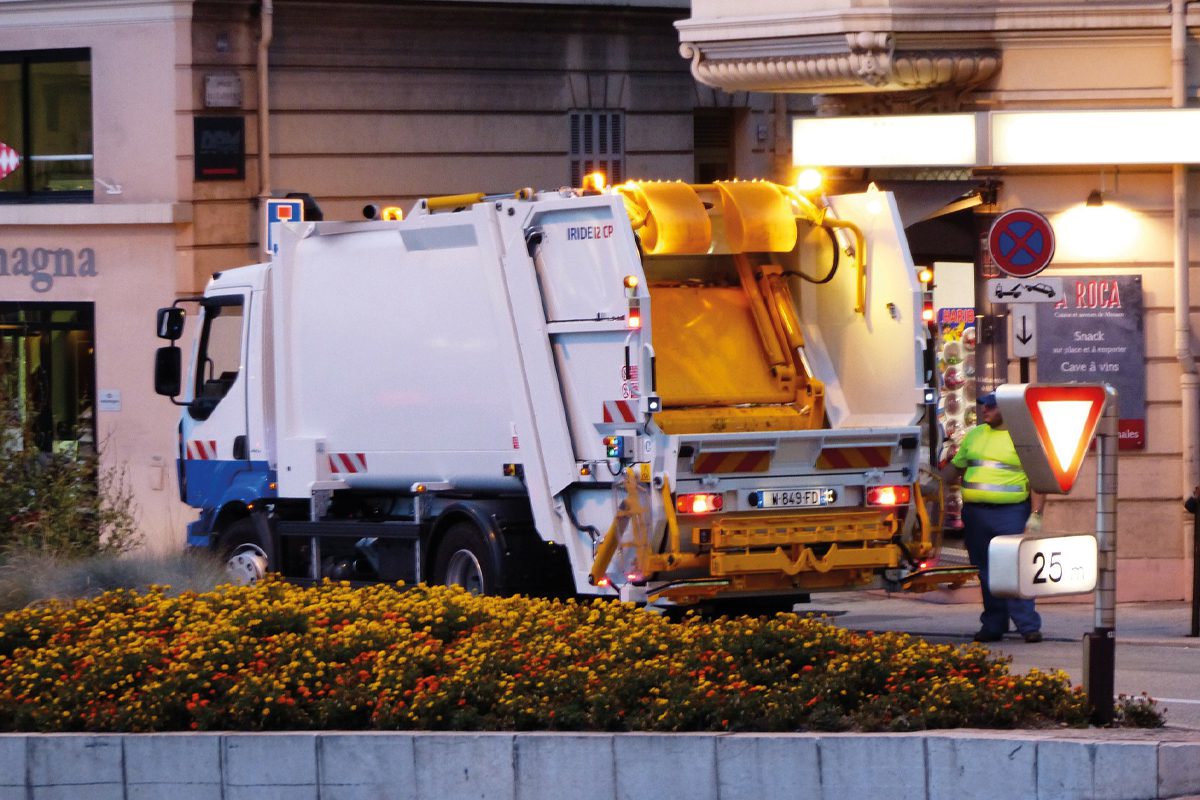
Quick thinking and agility has helped waste management companies survive and even prosper during lockdown, says Aaron Baker, an investor at BGF, an investment firm which has backed a number of firms in the waste sector
If the seriousness of the Covid-19 pandemic had been better understood back in January, when the outbreak appeared to be limited to Wuhan, it’s fair to say a lot of businesses would have made different decisions.
The waste management sector, like many industries, found itself grappling with an unpredictable and rapidly changing situation. By late March, when a full lockdown was ordered in the UK, it was clear that nimbleness and flexibility was needed.
As a major investor in the sector, backing seven waste management companies with a total of £48 million invested, BGF has a privileged view of the industry. Looking at the experience of companies both in our portfolio and beyond, the key learning is that quick thinking and adaptability have made the difference between mere survival and flourishing in this difficult environment.
Systems upgrades will be a positive legacy
The first challenge, once the UK lockdown was announced, was how to continue operating at a time when the government was ordering all non-essential workers to stay at home. While the waste management sector was by no means the only industry to face this challenge, there were problems specific to the business of managing waste facilities, depots and collection services that had to be overcome.
Could waste management businesses work effectively when the majority of their staff were home-based? To manage this transition, businesses had to put new systems in place, train their staff practically overnight in new processes, and in some cases upgrade their IT services in record time.
It’s crucial to note that although these changes were made in conditions of crisis, the companies that made them effectively will benefit in the long run. This is something that we at BGF have noticed across our portfolio. Businesses that were quick and efficient in their response to the lockdown will enjoy a positive legacy thanks to the technical and operational improvements they have made.
Waste changed – that’s a challenge and an opportunity
Lockdown forced the population to change their lifestyle and, as a result, consumption and waste habits changed too. The most obvious and most challenging aspect of this, for the waste management industry, was the decline in commercial and industrial waste, which, according to data reported by large waste firms Veolia and Suez UK, roughly halved during the initial UK lockdown.
Less waste produced by factories, offices and so on may have an environmental benefit in the long run, but for companies that exist to process, manage and recycle this waste, the decline in feedstock threatened to impart a severe economic cost, while also throwing up logistical challenges.
Again, agility was rewarded. Some companies used the quiet period to focus on process improvements to ensure that once volumes of commercial and industrial waste increased again, their systems were leaner and more efficient. Other firms pivoted towards different business models, recognising that much of the waste that had disappeared had not gone for good but been displaced. For example, while offices were producing much less waste than usual, household waste increased.
Waste companies also observed that the composition of household waste changed during the lockdown. To take one example, there was much more aluminium in household waste during the lockdown than before it. Why? Because people were drinking more canned drinks at home than usual.
Well-run waste management companies recognised the changing profile of the nation’s waste and turned it to their advantage, monitoring aluminium prices and selling on the recycled metal to bolster their profitability – a good example of how economic incentives can support environmental aims.

The uneven disruption of different industries created logistical problems
Despite the opportunities created by the crisis, there is no doubt that the halting of major industrial activity created problems for waste management firms. A key example is the construction industry, which largely stopped operating during the early stages of the lockdown.
Construction firms are major customers of waste management companies. One of the ways that ash from waste incinerators is recycled is by turning it into aggregate, an important building material. (Waste management firms also create aggregate by recycling waste from construction sites.)
With construction activity paused, there was a temporary but sharp fall in demand for aggregate, creating problems for waste management firms. In many cases, the solution was to store the unsold aggregate until the lockdown restrictions eased, when demand was expected to return.
The good news is that industrial activity has revived since the initial lockdown began. The challenge is that different industries have come back online at different times and at a different pace, reflecting the varying ways the virus has affected sectors of the economy, and the ease with which different industries have been able to adapt to ongoing coronavirus restrictions, such as the need for social distancing.
If this year has taught us anything, it is that predicting the future is fiendishly difficult. Rather than rely on long-term plans that have inevitably been confounded by the virus, successful waste management firms have been nimble, responding to fluctuating demand rather than trying to forecast it with accuracy, and seizing opportunities when they are available.
In future, waste management will be more important than ever
Undoubtedly, the Covid-19 crisis has been a difficult time for waste management firms. Some have been unable to adapt to the changing situation quickly enough, and we are already seeing some consolidation in the industry as better-funded businesses acquire and merge with companies that have become less economically viable as independent businesses. Although this is a challenging period for some, consolidation can bring significant benefits, allowing merged organisations to realise efficiencies of scale that ultimately reward customers with lower prices and a more efficient service.
Ultimately, the crisis has underlined the importance of the waste management and recycling industry. Countries are reassessing their priorities as the pandemic takes its toll and one consequence is likely to be an increased focus on sustainability. A well-managed, dynamic and agile waste management sector is an essential ingredient of a sustainable economic future. As a major investor in the sector, BGF is committed to providing long-term, patient growth capital to waste management companies, helping them in their drive to become larger, more efficient and more sustainable.







